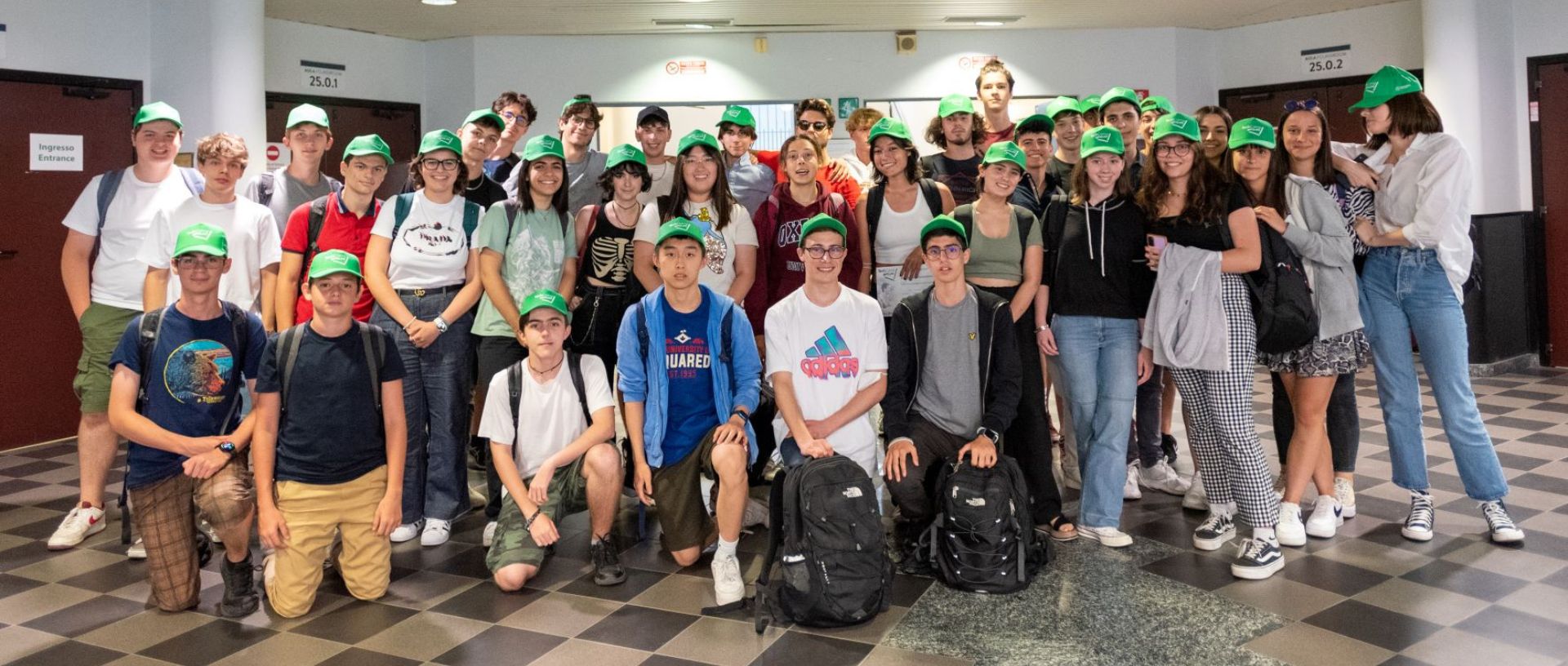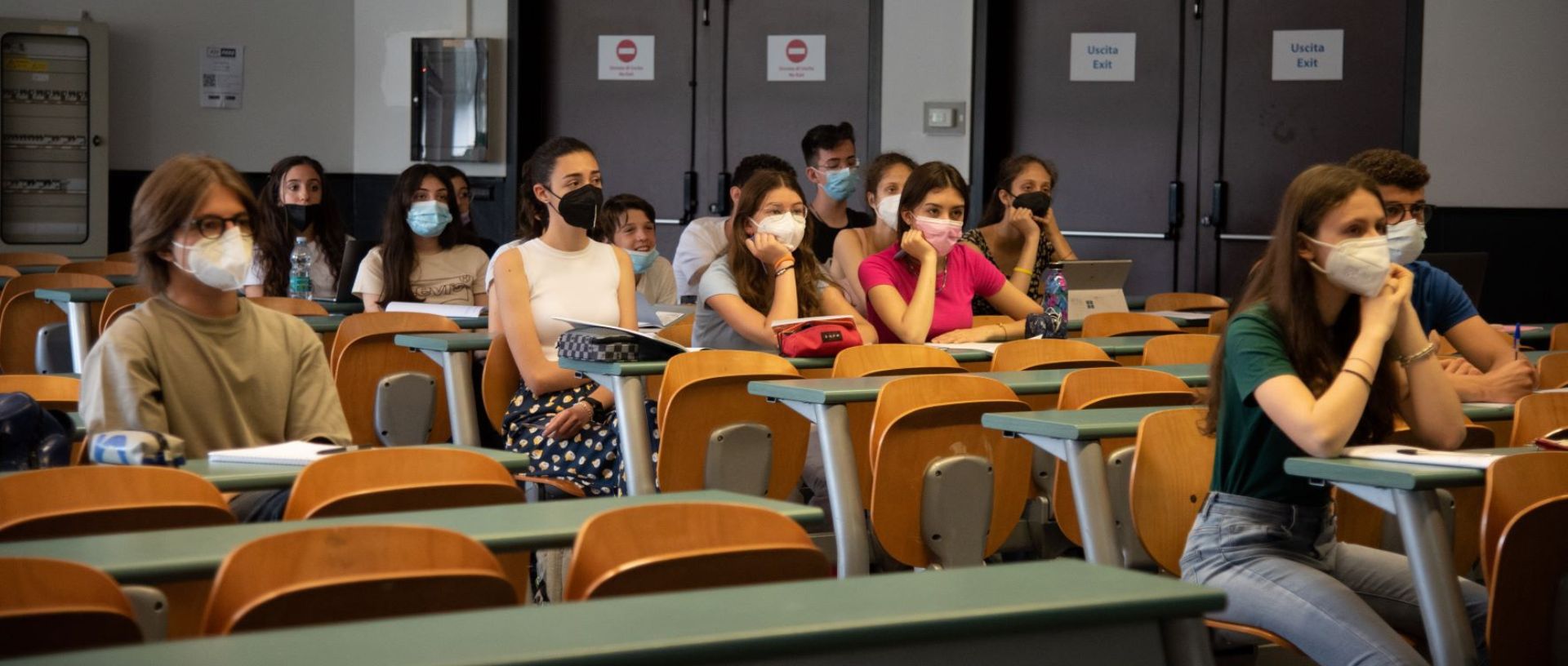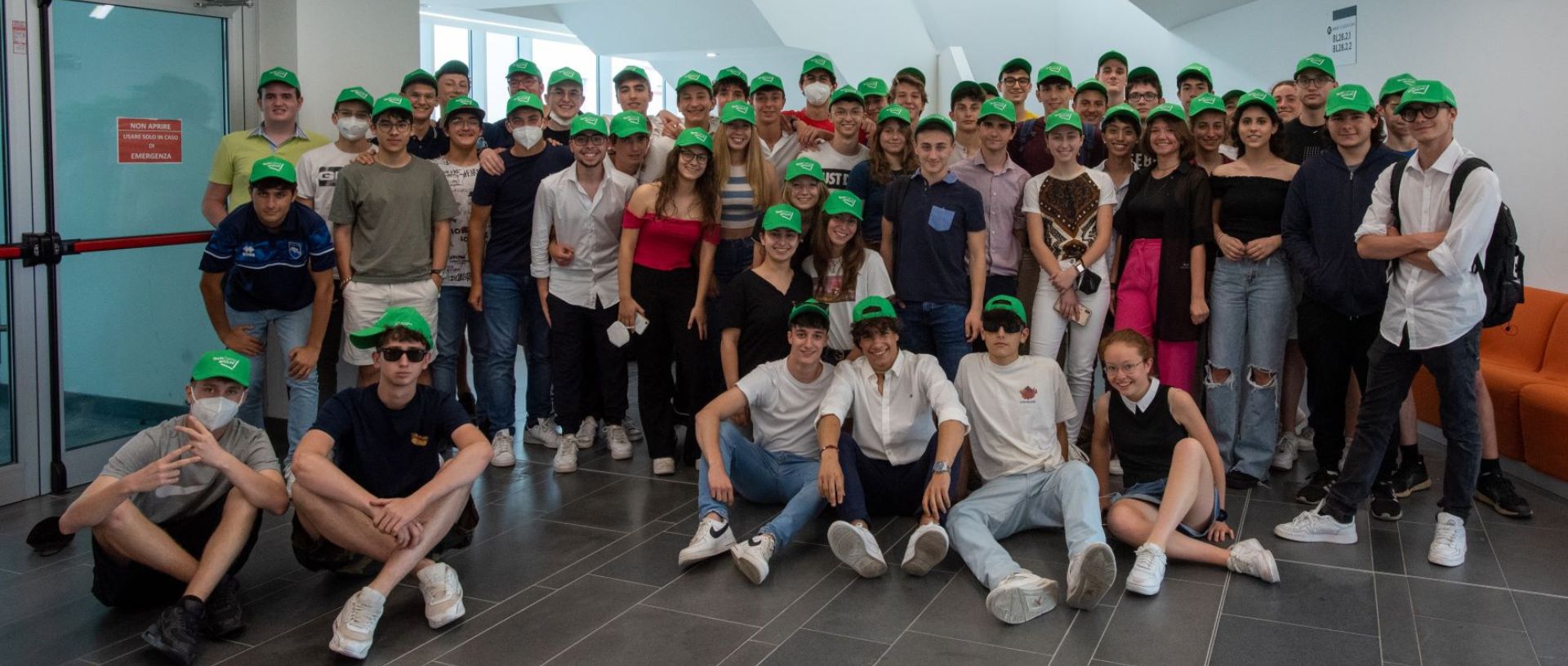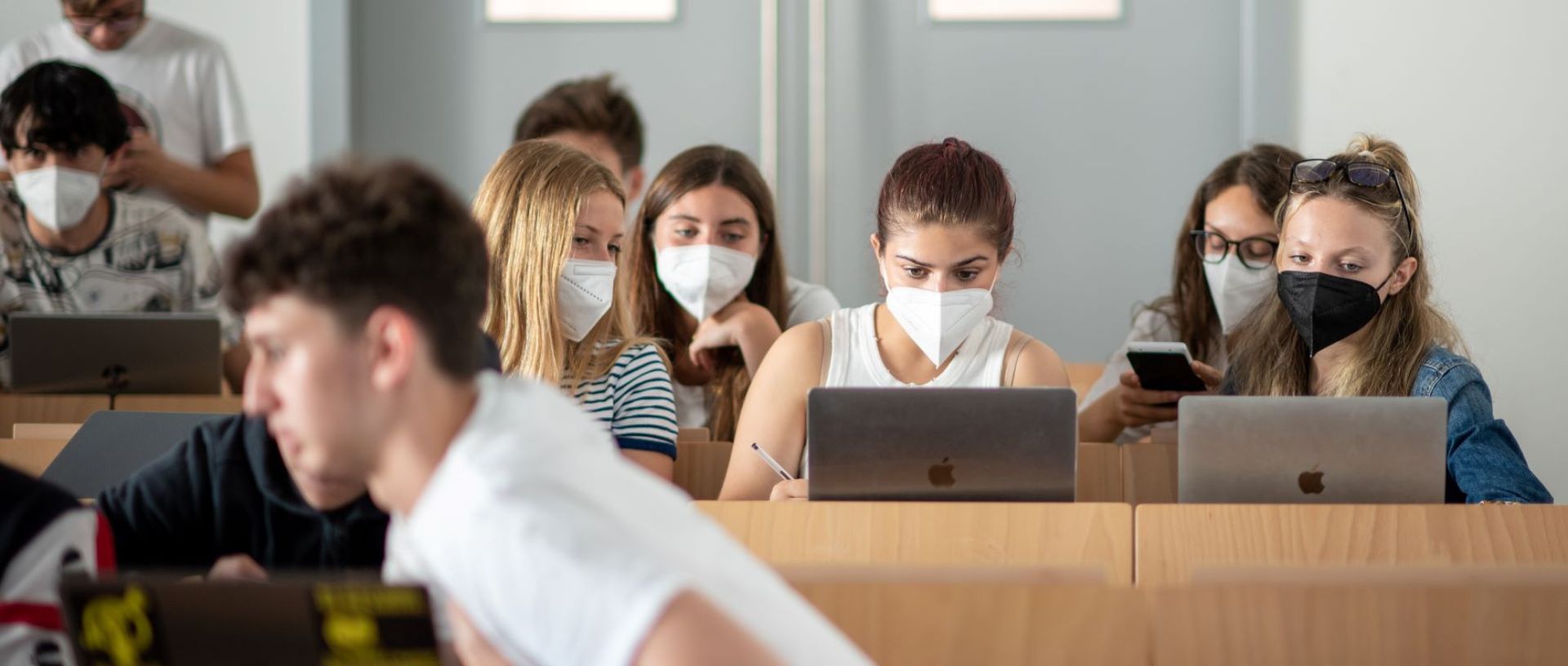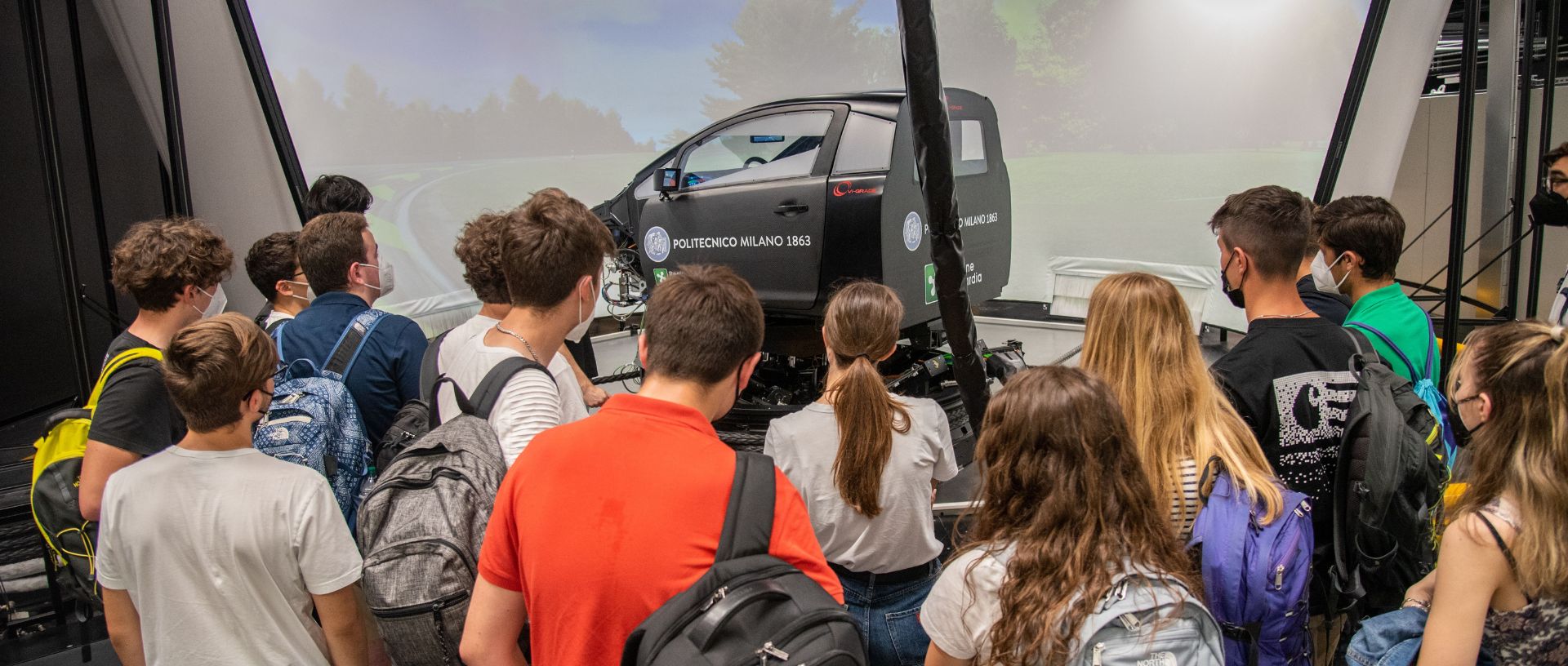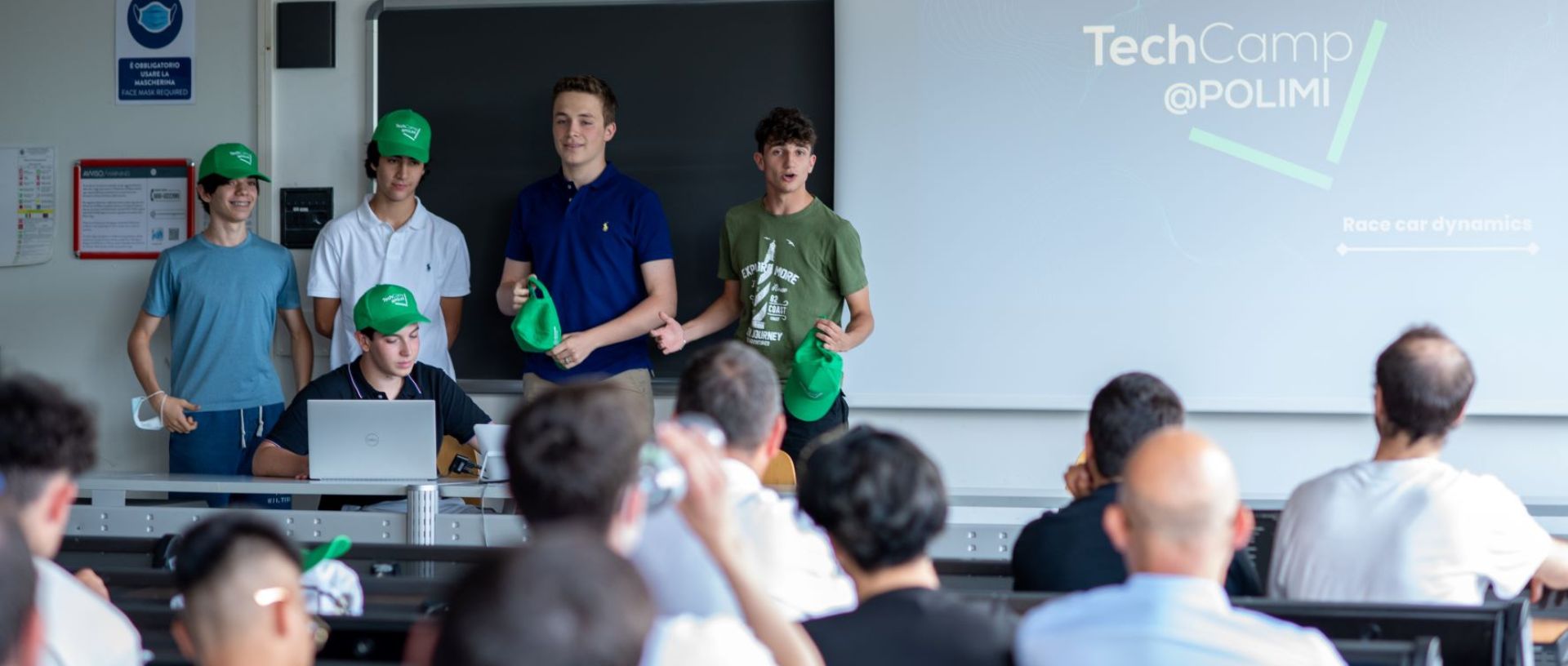TechCamp@POLIMI, the most technological Summer School in Italy
Enrolments open from 1 February for high school students
TechCamp@POLIMI is Italy’s first project to bring secondary school students closer to STEM (Science, Technology, Engineering, Mathematics) courses with university-level standards. These are intensive, hands-on, limited-enrolment courses held in English. Each is a week long and is held after the end of the school year (from 12.06.2023 to 23.06.2023) on the Città Studi and Bovisa campuses of Politecnico di Milano.
TechCamp@POLIMI enrolments are open from 1 February 2023 to 31 March 2023 at web techamp.polimi.it for high school students from second year up.
350 places are available for the 2023 edition and, to date, more than 50 scholarships that cover the full cost of the course. There are 13 weekly courses on 5 very topical STEM subjects: Green Energy, Cybersecurity, Coding, Robotics and Mobility. The courses are all conceived and led by professors, researchers and PhD students at Politecnico di Milano.
Below are details of all the courses:
GREEN ENERGY – Green energy: pillars and dreams
A hot topic in many different sectors, it sounds like it’s within reach and yet we seem to be stuck on the starting blocks. Why are we not making the ecological transition from fossil fuels to renewable energies right away? What’s holding everything up?
On this course, conceived and put together by professors from the Department of Energy, we will try to provide technical and scientific answers to these questions, focusing on the three main primary sources of energy: water, sun and wind. The main themes linked to the possible use of renewable energies will be covered, from machines and systems for energy conversion, to accumulation systems via questions linked to management of the power grid.
CYBERSECURITY - Cybersecurity and hacking: doing the unexpected
The world around us is filled with technology, and computers in particular. The systems we use every day, those we depend on, are complicated, and it is just as complicated to make them work correctly. In addition, extremely powerful and versatile systems are not often exploited fully, or they hold untapped potential.
Contrary to what is often communicated by the media, hacking is the ability (and art ) of making technological (and other) systems do things they were not designed to do. In a certain sense, it implies the capacity to understand them ‘better’ than those who designed them.
MOBILITY – Race car dynamics
Cover a distance in as short a time as possible and, above all, cross the finish line before others. This is the goal of a racing car. Car races are a challenge, not just for the drivers, but also for the engineers, who are always looking for new ideas to push technology to its limits and get the maximum potential out of a car. This course provides the basics of car dynamics and, in light of this, it explains how the chassis, tyres, suspension, engine, and aerodynamics together contribute to overall performance.
MOBILITY – Towards Autonomous Vehicles
Tesla, Apple, Google and many others... they’re all trying. Are self-driving vehicles the future? What intelligence lies behind these vehicles? On this course, conceived and put together by professors from the Department of Electronics, Information and Bioengineering, we will try to provide technical and scientific answers to some of these questions. It will cover the main tasks that a self-driving vehicle must perform.
Robotics: the art of intelligent motion
This course introduces participants to the concepts of robots and programming. Different challenging questions include: What is a robot? What movements can it make? How can we describe its motion? How can we make it move the way we want? What does it mean to program a robot? This course will provide the basic tools for answering these questions. Participants will also have the chance to programme a real robot and to observe the results of their programming.
CODING – Python, a language for inventors of worlds
This course presents Python, a powerful language for exploration and programming that will offer students interesting possibilities: programming objects around them, imitating certain aspects of human intelligence, writing videogames, creating images, synthesising music. But above all, they will get to know a powerful way to broaden their thinking and will have a clearer idea of what can be done with computers.
TechCamp@POLIMI, which stems from an idea by two Politecnico di Milano professors, Silvia Strada and Mara Tanelli, and by Francesca Sibella, is organised by Politecnico di Milano in collaboration with Fondazione Politecnico.
Each one-week course costs €700, and all students who have applied for admission will be assessed as potential beneficiaries of a scholarship.
If you would like bed and board, there is a partnership with a hostel in the city, but you need to organise your stay with the facility independently.
Find out more
Regulations and costs
Contacts


